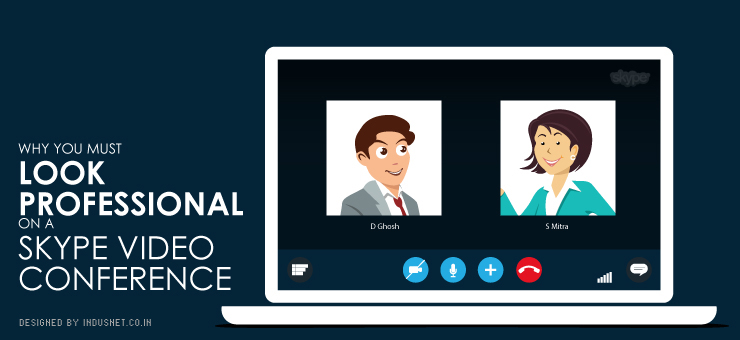
They say, appearances matter more than you think and they are quite true. When we say “they”, we are referring to psychologists, who have come up with a term called “lookism”. Lookism, in their opinion, reflects the human tendency to evaluate people, based on their appearance.
Appearance bias makes people rate people who are good looking or well dressed as more efficient or talented, while people who lacked good looks are, usually, evaluated negatively. In this article, we need to discuss lookism within the context of Skype conference calls and offshoring.
Lookism isn’t different from other forms of discrimination
Lookism, in its structure, is not different from racism, homophobia or sexism. It depends on a person’s look to judge his real worth, taking only into consideration his or her external appearance. Lookism costs people more jobs, relationships and even business opportunities than many other forms of discrimination. Lookism is still a grey area for human rights activists as there is so little that is being spoken or written about it. In fact, it is sort of a taboo to talk about people’s looks, while actively or inactively most people engage in it.
Marketing professionals often exploit people’s tendencies to judge people based on looks by hiring physically attractive models and it does work. However, what works is always not ethical or right. We cannot continue to support lookism when anyone can be a victim of it.
How to beat lookism while on Skype conference calls?
With Skype and other tools aiding recruiters & clients to speak to people in distant lands, lookism can certainly contribute to the way a person is evaluated & judged. With this in mind, how one needs to present oneself? If we are talking about Skype conferences with international and national clients, we need to know that whether we like it or not, our appearances are being judged. A majority of people does not engage in this sort of discrimination but unconsciously they do, psychological research studies indicate.
If we are being evaluated negatively based on our appearance, how do we present ourselves in order to clinch those business deals or get that job during a Skype interview? How do we tackle Skype conference calls with clients and vendors, when there is a possibility of being judged only based on your appearance? The answer seems to be, to present oneself professionally and put our points across in such a manner so that our professional value takes precedence over our looks.
Present and conduct yourself professionally
Though this is a very unpleasant topic, most of us can relate to being judged for our looks, appearance, weight, skin color, race and a number of other factors. It might turn out that your next client does not like people who have a mole on their cheek and you apparently do have it. Tough luck, it might seem but it really does not matter as long as you present yourself professionally over Skype video calls.
Moreover, if the person is actively judging you based on your look and preventing you from clinching a business deal or a job, it is probably not worth it in the long term to work with such a biased person. Thankfully, most people today are sensitive and only a small minority engages in this sort of behavior.
Looks need not matter
There can’t be a better conclusion than saying our appearances or looks need not matter but unfortunately a tiny minority of people seem to evaluate us based solely on our exteriors. If we were to engage with them online or offline, we need to remember that it says more about them than ourselves. If we are going to worry about how our clients, vendors, recruiters, employees and business partners judge us based on our looks, things will not really go far.
The only solution seems to be, to actively make sure that we don’t engage in lookism. Another important and beneficial thing to do is to be presentable & professional not only in terms of grooming but also in terms of behavior and conduct. These steps need not be more than enough to tackle any lookist that we come across on Skype, in person or at a real conference.